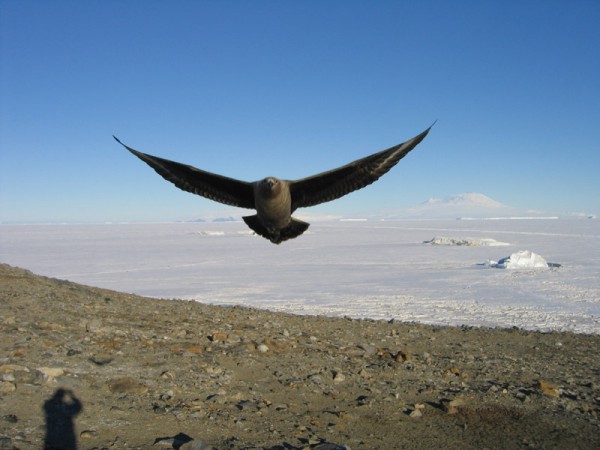By Ana Verayo, | March 28, 2016

Brown skuas in the Antarctic can apparently recognize humans and attack those who visited their nests.
Crows and magpies are known for their high IQ making them one of the few bird species that are considered as intelligent. Now, an Antarctic bird species can now be considered in the same league as these clever birds as they can easily recognize the face of individual humans.
In a new study, South Korean scientists discovered that brown skuas, which are Antarctic breeding seabirds, also scientifically known as Stercorarius antarcticus, have the ability to remember and distinguish specific humans who have been near their nests.
Like Us on Facebook
During field work, researchers monitored a colony of these birds and checking their nests once a week to track their breeding conditions and behavior. When members of the team try to check their nests, the skuas suddenly become more aggressive where they attack by "yelling" and following, stomping away at humans to a point where they even kick the heads of the intruders.
In an experiment, the team conducted tests whether or not the birds were able to know which individuals have been to their nests and those who have never visited.
In this video, two members of the team are walking together then go their separate ways in different directions where brown skuas preferred to attack on the man that just went to the right. Apparently, the targeted man already visited the birds' nests before and measured the nestlings while the man who turned left have never been to those nests.
Researchers now reveal their two theories how animals differentiate humans. They either possess innate intelligence that makes it easy for them to figure it out or the have learned this ability from repeated exposure to humans.
Scientists say that it appears that the skuas' cognitive abilities promote learning skills when they are exposed to occasional interactions with humans who are currently inhabiting the Antarctic stations.
According to lead author of the study, Won Young Lee of the Korea Polar Research Institute, this region was only inhabited by humans when the Antarctic research stations were established, now, the skuas can learn more discriminatory skills even during a short period of time when they are living near humans.
Brown skuas evolved in a habitat that have been free from humans where they instantly recognized individuals after three or four visits. It seems that they possess very high levels of cognitive abilities, Lee adds.
This new study is published in the journal Animal Cognition.
-
Use of Coronavirus Pandemic Drones Raises Privacy Concerns: Drones Spread Fear, Local Officials Say

-
Coronavirus Hampers The Delivery Of Lockheed Martin F-35 Stealth Fighters For 2020

-
Instagram Speeds Up Plans to Add Account Memorialization Feature Due to COVID-19 Deaths

-
NASA: Perseverance Plans to Bring 'Mars Rock' to Earth in 2031

-
600 Dead And 3,000 In The Hospital as Iranians Believed Drinking High-Concentrations of Alcohol Can Cure The Coronavirus

-
600 Dead And 3,000 In The Hospital as Iranians Believed Drinking High-Concentrations of Alcohol Can Cure The Coronavirus

-
COVID-19: Doctors, Nurses Use Virtual Reality to Learn New Skills in Treating Coronavirus Patients







